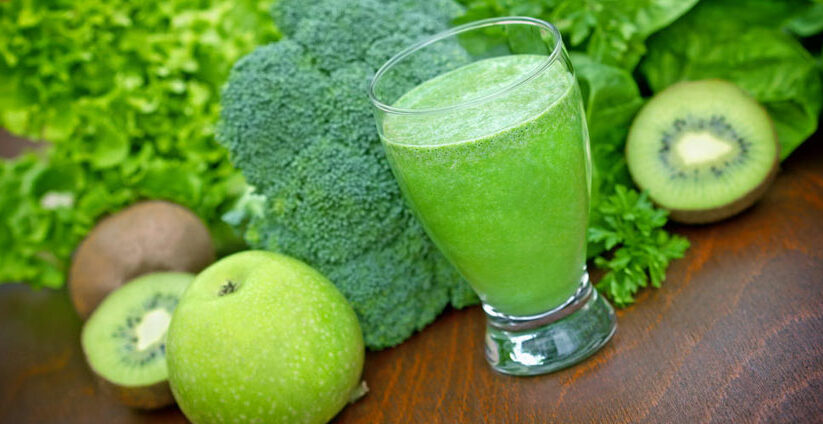Chlorophyll, a green pigment found in plants, has a number of health benefits. These naturally occurring compounds help plants absorb energy and carry out their photosynthesis process, as well as give plants their color.
The presence of fat-soluble compounds and antioxidant properties typically influences the benefits of chlorophyll. Chlorophyll begins to circulate throughout your body in micelles or molecular groups that contain fat when you consume it. The body processes food more efficiently when it contains small amounts of fat.
Chlorophyll’s health benefits include:
1. Chlorophyll’s Positive Effects on Skin-
One of chlorophyll’s Dynamic Benefits is its ability to improve skin health by reducing inflammation and fighting acne. By acting as a natural cleanser, it also helps to improve your skin’s appearance and slow the signs of aging.
2. Cancer Prevention-
Chlorophyll’s role in reducing the incidence of cancerous tumors makes it one of its primary health benefits for cancer prevention. Additionally, this green pigment in your body aids in protecting your genes from damage caused by harmful aflatoxins.
To learn more about how chlorophyll affects cancer in the liver, stomach, skin, and colon, researchers are conducting additional research.
Additionally, studies have demonstrated that eating more green vegetables is generally beneficial for cancer prevention.
3. Antioxidant Effects-
Antioxidant effects are one of the health benefits of chlorophyll, but they are only relevant in nutrients like vitamins E and C. Consuming leafy green vegetables that contain chlorophyll on a regular basis helps increase the amount of antioxidants in the blood. Your body’s level of chlorophyll also helps to lessen the oxidative damage caused by carcinogens.
4. Benefits of Chlorophyll for Women-
The benefits of chlorophyll for women also typically vary. Clearing your skin, acting as a natural deodorant, lowering inflammation, assisting in the prevention of cancer, facilitating digestion, and other benefits are included.
Risks to Your Health from Chlorophyll
There are currently no known negative effects from chlorophyll, which is good news for your health. However, taking chlorophyll supplements may have some negative effects on your body, such as the following:
Discoloration of the urine and feces, occasionally diarrhea, tongue discoloration, and a mild burning and itching sensation when chlorophyll supplements are applied to a wound. The risk of taking chlorophyll supplements while pregnant or breastfeeding has not yet been determined.
Liquid Chlorophyll Side Effects
Alongside the medical advantages of chlorophyll, fluid chlorophyll additionally will in general have a few potential secondary effects including:
- Nausea as the chlorophyll moves through your digestive tract.
- Diarrhea, which can last for a few days
- Vomiting
- Abdominal discomfort such as stomach cramps
- Itching and burning sensation in the skin.
Food Rich in Chlorophyll
Plant-based foods tend to be rich in chlorophyll, which you can incorporate into your diet. Algae, mustard greens, collard greens, lettuce, spinach, bok choy, parsley, kale, and other vegetables
Additionally, fruits and nuts like kiwis and pistachios contain a lot of chlorophylls. Supplements containing chlorophyll, such as chlorella and spirulina, are also available on the market.
In recent years, the health benefits of chlorophyll have been applied to wounds that smell bad and take a long time to heal.
- World Meditation Day 2024: The Emotional Growth Benefits of Mindfulness for Kids - December 21, 2024
- Bryson DeChambeau will make international history in his first tournament of the year - December 21, 2024
- Disney’s ‘Mufasa: The Lion King’: Who Is the Voice of the Legendary King? - December 21, 2024





